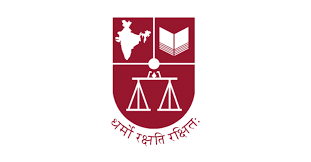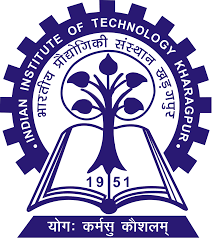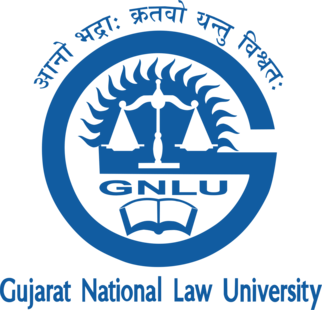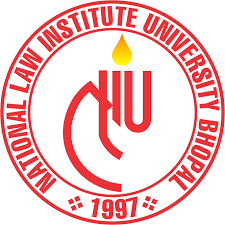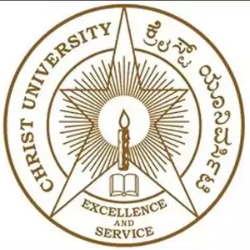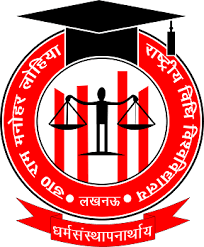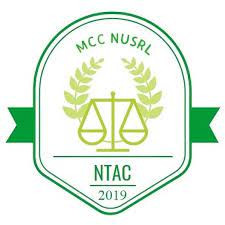Course Highlights
Here is a table that highlights the course details, duration, and fee structure for pursuing LLM. It also provides insight into the average salary and top job profiles after completing LLM.
|
Course Name |
Master of Laws (Latin: Legum Magister) |
|
LLM Course Duration |
2 Years |
|
LLM Course Eligibility |
The basic eligibility is to have a graduation degree from a recognised college. |
|
LLM Admission Process |
CLAT, AILET, LSAT |
|
LLM Course Fees |
INR 5K to 30K (might defer) |
|
LLM Jobs |
Lawyer, Advocate, Paralegal, Law Officer, Legal Associate, Corporate Lawyer, Lecturer, etc |
|
LLM Course Salary |
From INR 6 to 10 LPA. |
Eligibility Criteria for LLM
To pursue a Master of Laws degree, candidates must meet the following eligibility criteria:
- A Bachelor's degree in law with a minimum aggregate mark of 50% is required
- Students must be at least 17 years old to pursue a Master of Laws degree.
List of Entrance Exams for LLM
- CLAT (Common Law Admission Test)
- AILET (All India Law Entrance Test)
- AP LAWCET (Andhra Pradesh Common Law Entrance Test)
- LSAT (Law School Admission Test)
- CUCET (Common University Entrance Test)
Course and Curriculum
In general, the two-year LLM course is divided into four semesters by the specialisation offered by the university. The table below presents the general structure of the LLM course across India.
|
Semester 1 |
Semester 2 |
|
Comparative Constitution Law and Governance |
Administrative Action and Judicial Review |
|
Legal and Social Science Research Methods |
Law of Air and Space |
|
Law of International Organisation and Human Rights |
Law and Justice in a Global World |
|
Corporate Management and Social Responsibility |
Competition and Consumer Protection Law |
|
Intellectual and Industrial Property Laws-I |
Law of Corporate Finance and Securities Regulation |
|
Comparative Labour and Wage Law |
Intellectual and Industrial Property Laws-I |
|
Corporate Management and Social Responsibility |
Insurance Law and Banking |
|
Comparative Law of Marriage, Divorce and Civil Code |
Cyber and Information Technology Law |
|
Administrative Law and Regulatory Mechanisms |
Law, Media and Censorship |
|
Semester 3 |
Semester 4 |
|
Interpretation and Drafting of Treaties and Legislation |
Specialisation Elective -III |
|
International Economic Law, Trade & Diplomacy |
Specialisation Elective -III |
|
Environmental Law |
Viva Voce |
|
Criminology and Criminal Justice Administration |
Dissertation |
|
International Economic Law, Trade & Diplomacy |
|
|
Tax Policies and Tax Reforms |
|
|
Laws of Inheritance and Succession |
|
|
Law of Women and Child Rights (modified) |
|
The LLM course offers various specialisations, such as
|
LLM International Law |
|
|
Comparative Public Law |
Law and Justice in an Internationalized World |
|
International Law and International Relations: Development and Trends |
International Human Rights and Humanitarian Law |
|
International Organizations |
International Courts and Tribunals |
|
Law of Sea, Air and Space |
International Dispute Resolution Bodies |
|
LLM Corporate Law |
|
|
Financial Models and Derivatives in a Legal Context |
European Law of Capital Markets |
|
Banking and Finance Law |
European Procurement Law |
|
Corporate Social Responsibilities and the Law |
Principles of International Tax Law
|
|
LLM Taxation Law |
|
|
General Principles of Taxation |
Indirect Tax laws |
|
Direct Tax Laws |
International Taxation |
|
Tax Litigation |
Corporate Tax |
|
LLM Human Rights |
|
|
Concept of Human Rights & Human Duties |
International Humanitarian Law |
|
Human Rights & Criminal Justice |
Refugee Law |
|
Constitutional Governance of Human Rights in India |
People’s Rights to Self-determination |
|
LLM Constitutional Law |
|
|
Law and Social Transformation in India |
Judicial Process |
|
Constitutionalism: Pluralism & Federalism |
Mass Media Law |
|
Indian Constitutional Law- The New Challenges |
Administrative Process and Judicial Control |
|
LLM Environmental Law |
|
|
Administrative Process and Judicial Control |
Protection of Environment under the Indian Constitution |
|
Nature and Scope of Environmental Law |
Protection of Water, Air and Environment in India |
|
Environmental Protection and General Civil and Criminal Laws |
Emerging Issues in Environmental Law |
|
LLM Criminal Law |
|
|
Banking Law |
Theories of Law |
|
Research Methodology |
Legislative Process |
|
Corporate Law |
Life and Fire Insurance |
|
LLM Family Law |
|
|
Family Law I – System Scope Sources and Schools |
Law and Justice in Globalizing World |
|
Family Law I – System Scope Sources and Schools |
Legal English and Research Methodology |
|
Comparative Public Law |
Family Law V – Family Property and Succession |
Type of LLM Courses
The LLM courses are available in both online and offline modes of education. In both modes of education, students can enroll in full-time or part-time classes.
The full-time LLM courses are usually two years and spread over four semesters, followed by training and project sessions. Students must follow the attendance guidelines and other guidelines issued by the course regulators.
The part-time courses are specifically designed to cater to working professionals' academic needs. It will cover all the topics in a regular full-time LLM course, but the duration will be longer. However, you can finish in 2 years if you are competent enough.
Top LLM Colleges in India with Fees
|
College Name |
LLM Fees ( Approx.) |
|
₹78 K - 2.69 L |
|
|
₹1.35 L - 1.42 L |
|
|
₹65 K - 95 K |
|
|
₹1.2 L - 1.35k |
|
|
₹1.5 L - 2.10 L |
|
|
Saveetha Institute Of Medical and Technical Sciences - Chennai |
₹1.25 L -1.45 L |
|
₹1.45 L - 1.55 L |
|
|
₹2.4 L - 2.55 L |
|
|
₹4.4 L - 4.55 L |
|
|
₹70 K - 1.6 L |
Employment and career opportunities
Upon completion of LLM, students can opt for any of the following job roles suitable for their skill sets. It is important to note that to be licensed to practice law in India, applicants must pass an All India Bar Exam (AIBE).
|
Advocate |
INR 4 LPA to 6 LPA |
|
Solicitor |
INR 3.5 LPA to 6 LPA |
|
Legal Advisor |
INR 5 LPA to 10 LPA |
|
Notary |
INR 3.5 LPA to 5 LPA |
|
Oath Commissioner |
INR 4 LPA to 6 LPA |
|
Judge |
INR 10 LPA upwards |
Scope of LLM Course
After pursuing an LLM course, candidates can opt for further studies to pursue either an MPhil or PhD in Law or LLD. Being an emerging field, the students can pursue the law and kickstart their lawyer journey in their field of choice.
FAQs
- Which is the best college in India for LLM?
Ans: Here is a list of top LLM colleges in India.
- National Law School of India University
- National Law University Delhi
- NALSAR University of Law
- The WB National University of Juridical Sciences
- Indian Institute of Technology - Kharagpur
2. What are some LLM specialisations that I can study?
Ans: You can pursue the following courses:
- LLM Corporate Law
- LLM International Law
- LLM Criminal Law
- LLM Intellectual Property Rights
- LLM Environmental Law
- LLM Labour Law LLM Human Rights
- LLM Constitutional Law
- LLM Business Law
3. Can I do a distance LLM course?
Ans: NO, a distance LLM course is not recognised by the Bar Council of India (BCI).
4. What is LLM's complete form?
Ans: The full form of LLM is Master of Law. LLM is also known as Legum Magister.
5. Is LLM possible without LLB?
Ans: No, an applicant must have a Bachelor's degree in law to qualify for an LLM.

